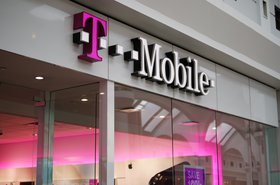Spark New Zealand has said it's working to sell its stake in tower business Connexa.
The company, which currently owns a 30 percent stake in Connexa, also revealed this week that it has reduced its earnings guidance.
Connexa has operated separately from Spark, since the operator sold a 70 percent stake in its passive mobile infrastructure assets to the Ontario Teachers’ Pension Plan in July 2022. The transaction was finalized in October 2022 for NZ $900m ($573m).
“We are reviewing all non-core assets to determine if Spark remains the best owner, or if divestment or partnerships will deliver greater value to shareholders while further strengthening the balance sheet," said Spark Chair Justine Smyth.
"We have made the decision to divest our shareholding in mobile towers business Connexa, and while a transaction is not yet certain, the strong levels of interest we have received are reflective of the high quality of the Connexa business."
She noted that the company will provide a further update on its review of its non-core assets in February when it announces its interim results.
Last year, Connexa completed the acquisition of 2degrees Networks Limited's passive telco tower assets from its owners Macquarie Asset Management and Aware Super Limited for NZ$1.1 billion ($666m).
The carrier did note, however, that it will remain focused on delivering growth to its shareholder value through its data center strategy.
In April of last year, the telco announced a three-year strategy to invest between $156 million to $189m in data centers.
Providing an update on its earnings, Spark stated that it has reduced its full-year EBITDAI (earnings before income, tax, depreciation, amortization, and investment income) outlook by four percent to between NZ$1.12bn and NZ$1.18bn ($669m to $705m). The company also reduced its capex guidance.
Spark said it expects mobile service to remain flat year-on-year (YoY) compared to its original aim to drive around three percent growth. The carrier blamed lower than anticipated growth in overall mobile connections and pressure on ARPU.
“We recognize that we have a lot of work ahead of us to win back the confidence of our shareholders, and we are committed to that work," added Spark CEO Jolie Hodson.
"While we are navigating a subdued economic environment and increased competitive pricing pressure in the business market, the long-term value drivers of mobile remain."







